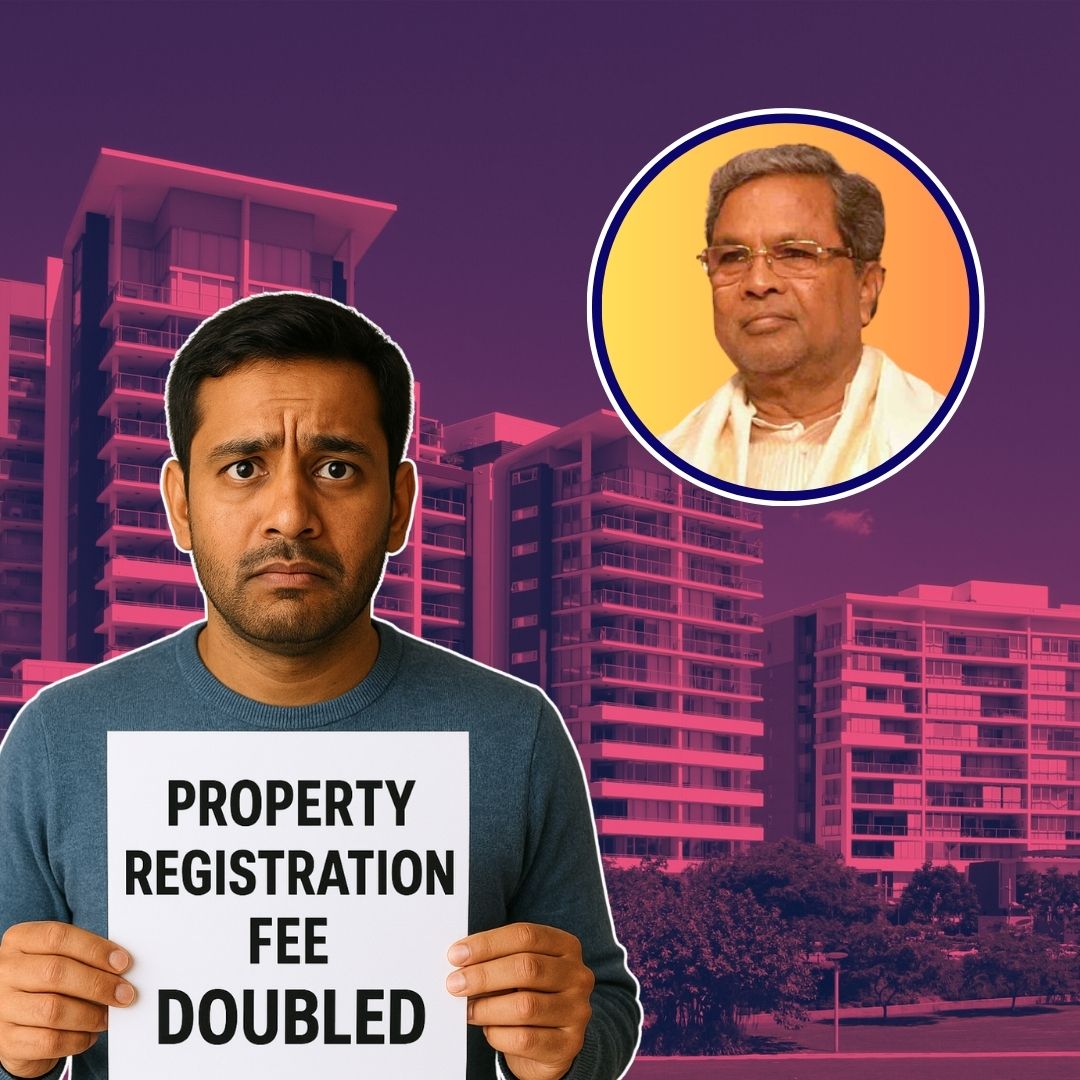Starting August 31, 2025, Karnataka doubled its property registration fee from 1% to 2%, raising the total property transfer cost to approximately 7.6% after including a 5% stamp duty and other cesses.
The state government announced this hike to address sharp revenue shortfalls in the Department of Stamps and Registration. While officials emphasize that Karnataka’s fees remain among the lowest in South India, many citizens, real estate experts, and political leaders have expressed concerns about the impact on affordability and property market activity.
Revenue Pressure Prompts Fee Increase
The Karnataka government’s decision to increase the registration fee comes in response to significant shortfalls in stamp duty and registration revenue collections. For financial year 2024-25, the department collected Rs 22,500 crore, falling short of the Rs 26,000 crore target.
Early data for 2025-26 showed a 35% revenue shortfall against a revised target of Rs 28,000 crore. By doubling the registration fee, officials aim to generate an additional Rs 2,500-3,000 crore through March 2026 to help close the fiscal gap.
Revenue Department Principal Secretary Munish Moudgil explained that the fees had not been revised upwards since 2013 when the registration fee was reduced from 2% to 1%.
Inspector General of Registration Mullai Muhilan noted that even with the increase, Karnataka’s overall property transaction fees remain significantly lower than neighbouring states such as Kerala (about 10%) and Tamil Nadu (9%), with Telangana and Andhra Pradesh both around 7.5%.
Impact on Homebuyers and Real Estate Market
The hike in registration fees will increase property transaction costs by roughly 1%, from about 6.6% to 7.6%. For a property valued at Rs 1 crore in Bengaluru, registration costs will now rise from Rs 1 lakh to Rs 2 lakh. This cost increase extends beyond simple sales to Joint Development Agreements (JDA) and General Power of Attorney (GPA) contracts, which often involve larger land parcels, thus amplifying the financial effect on real estate developers and investors.
The Federation of Karnataka Chambers of Commerce and Industry (FKCCI) chairman G Balakrishna expressed concerns that this fee increase could negatively affect Karnataka’s economic development by slowing down property registration activities.
Bangalore Apartments Federation president Vikram Rai pointed out that property buyers in Bengaluru already pay up to 40-45% above property prices due to various taxes and fees, warning that further hikes might encourage undervaluation practices and black market transactions.
Administrative adjustments accompanying the fee hike, such as temporary system upgrades, had caused some delays in registration processes. In Mysuru, the government has provided helpdesk support and detailed guidelines to assist applicants with new procedures to mitigate bottlenecks.
Broader Economic and Social Context
The fee increase is part of a pattern of rising costs in Karnataka, including higher taxes on petrol, liquor, electricity tariffs, water charges, vehicle registration fees, and other government levies under the current administration. The hike reflects an urgent need to shore up state revenues amid growing welfare expenses and slower economic growth.
Despite these pressures, this fee adjustment raises questions about the balance between fiscal needs and public welfare. The government insists the fee is justified and comparatively moderate, but the public response reveals anxiety about affordability, especially for middle-class families striving for homeownership.
The Logical Indian’s Perspective
While Karnataka’s efforts to stabilise its finances are understandable, the doubling of property registration fees could disproportionately strain the aspirations of ordinary citizens and the real estate sector’s balance.
The Logical Indian advocates for policies that are transparent, phased, and inclusive, encouraging dialogue between government, industry stakeholders, and citizens to ensure equity and social harmony. Such reforms should minimise undue hardships and foster trust to promote long-term sustainable growth.
Property registration charges has gone up with immediate effect in #Karnataka. #Bengaluru #RealEstate pic.twitter.com/79zFgKKVp2
— Anil Budur Lulla (@anil_lulla) August 30, 2025













